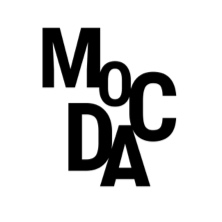Gibson / Martelli
Graduates of RMIT with a joint PhD in immersivity and somatic sensing. Worldwide commissions include residencies in North America, China, Ireland, Australia and New Zealand and exhibitions at the Barbican, Centro de Arte Moderna, Lisbon and Detroit Institute of Arts, Venice Biennale.
Recent exhibitions include: ‘Enter Through The Headset 5’ at Gazelli Art House, London, ‘New Raw Green’, Sim Smith Gallery, London, ‘London Film Festival Expanded’, BFI, Ars Electronica Festival for Art, Technology + Society, and 79th Venice International Film Festival of La Biennale di Venezia.
Nominated for a British Academy of Film & Television Arts (BAFTA) the duo are recipients of several awards: a Henry Moore Foundation New Commission, a National Endowment for Science Technology and the Arts (NESTA) Award, in 2015 winning the Lumen Gold Prize.
The artists recently completed an AI and machine learning project with collaborators at Goldsmiths University of London and Creative Computing Institute UAL. Gibson is Associate Professor at Centre for Dance Research, Coventry University. The artists live and work in London.
Last update on 10-03-2023
Let us know how we can improve this record: info@mocda.org
Featured Artworks
The Foundry
Events
Sign up to our Newsletter
Hear about activities, events and exhibitions from MoCDA.
